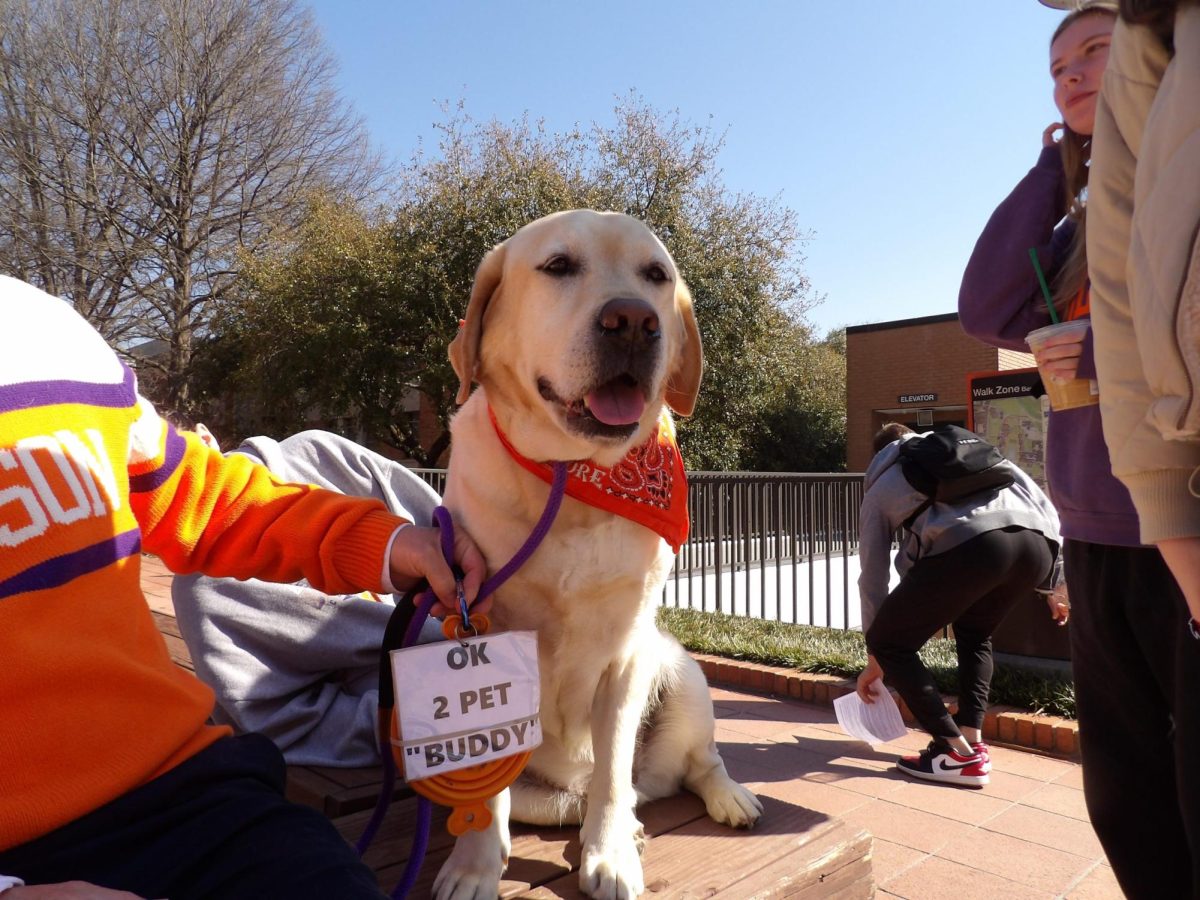Clemson Undergraduate Student Government (CUSG) Senate has passed a resolution in support of efforts to “better the LGBTQ experience at Clemson.” The vote occurred Monday, Jan. 24 during the Senate’s first meeting of the spring semester. It was a unanimous decision.
CUSG Health and Human Services Chairwoman Emily Blackshire said the vote was “not political” and that efforts to improve the LGBTQ experience “are happening regardless of CUSG’s support.”
“The resolution passed by [the] Senate conveys Student Senate support for initiatives that support the LGBTQ community,” said Shannon Kay, president of CUSG. Kay said that Clemson’s Campus Pride Index score of 1.5 out of 5 is one reason why the resolution is necessary. She pointed out that Clemson’s peer institutions hold scores of 3 or more.
The Campus Pride Index is a “national benchmarking tool for colleges and universities to create safer, more inclusive campus communities,” according to http://www.campusprideindex.org/. A nonprofit that works with students across the country to create resources for LGBTQ and ally students, Campus Pride developed the index to give prospective students and their families a database of LGBTQ-friendly campuses. Clemson included the index as part of its Campus Climate Survey, an effort to gauge the atmosphere of campus.
“I think it’s important to note that [the] Campus Climate Survey is based on policy, not on the actual campus climate,” said Jessie Bailey, a sophomore English major and president of Clemson Gay Straight Alliance (CGSA). “Clemson is at least doing better than a 1.5 in terms of the climate of LGBTQ+ relations on campus.” However, Bailey also said that the university’s policies and procedures are inadequate and require further action. “The [Senate’s] resolution is worded very broadly … I personally hope this means that they will make substantial changes.”
One change that CGSA supports is gender inclusive housing. The purpose of gender inclusive housing is to give members of the LGBTQ community the option of living with other LGBTQ individuals. “I think that’s the scariest thing for an incoming LGBTQ student is to have a random roommate who isn’t accepting,” said Courtney McKevie, a Clemson alumnus and former CGSA president.
“I know people in CGSA who went out of their way to find someone who identified as the same sexuality … so they could room together, just because they didn’t feel safe.”
Safety is an important element of Clemson’s LGBTQ agenda. In 2003, the university instituted the Safe Zone Program to create a more welcoming environment for LGBTQ people. The program provides Ally Training for faculty and staff who want to be a resource for students and establish their offices as Safe Zones. Winston Holton’s office is one of those safe zones.
“Unfortunately, Clemson’s campus culture hasn’t been the open environment for those professing alternative lifestyles,” said Holton, a Clemson alumnus and field director of Clemson’s Call Me MISTER (CMM) program. The CMM initiative is to make the pool of teachers in South Carolina’s lowest performing elementary schools more diverse.
“MISTER stands for ‘Mentors Instructing Students Towards Effective Role Models,’ and it is critical for me and other leaders across our network to exemplify this mission,” said Holton, explaining why he participated in Ally Training. “Call Me MISTER provides opportunities during seminars, dialogues and informal discussions for participants to address issues of the LGBTQ community in
non-threatening spaces.”
Bailey said that Campus Pride’s website has a checklist of guidelines that schools can follow, one of which is gender neutral bathrooms. CUSG identified gender neutral bathrooms as an example of LGBTQ initiatives that the resolution supports.
“We will continue communicating with administrators to make sure that the general initiatives identified in the resolution are pursued,” said President Kay, commenting on future actions her administration will take to actualize the resolution’s goal. “It’s important to keep in mind that the resolution is simply a statement of support, which is different from a bill.”
Kay said that the aspect of her and Thomas’ platform that the resolution represents is “Unite Our Family,” the aim of which is to improve the experiences of students while at Clemson. In regards to students who may disagree with the resolution, Kay emphasized the resolution’s focus on inclusivity. Chairwoman Blackshire said that CUSG is “helping a group of students who are asking for help … while not detracting from other students.”
Holton said that inclusivity has been an essential part of CMM culture, resulting in significant improvement in the program’s climate. “I have several friends and family who belong to the LGBTQ community, and I’ve witnessed their struggle for acceptance on a very personal level,” said Holton. “It will be great when the entire campus is a safe zone, but for now, I’m proud to have my office identified as one.”







